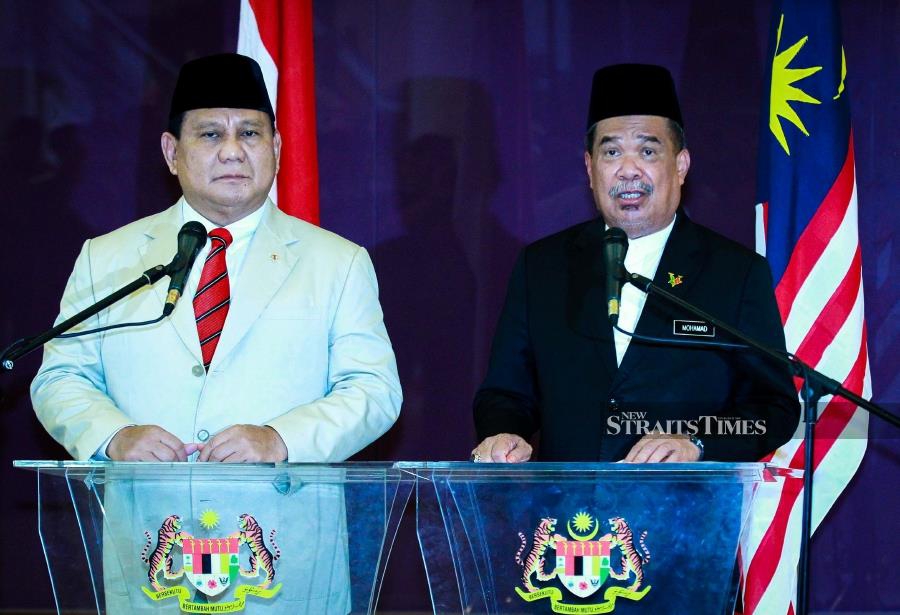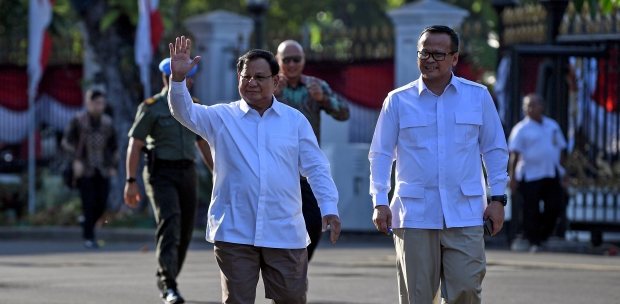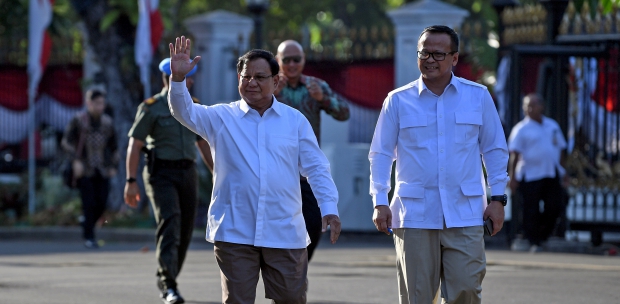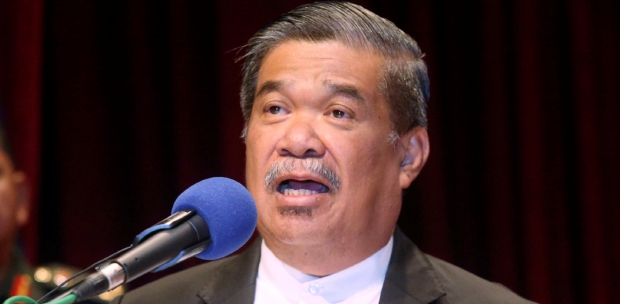- Joined
- Jun 27, 2018
- Messages
- 31,440
- Points
- 113
ABOUT ADVERTISE SUBMIT NEWS
WHAT IS ISLAMOPHOBIA? CHINA HAS THE ANSWER
15 OCT 2017
WEST IGNORES ISLAMOPHOBIA IN CHINA—IN THE GOVERNMENT AS WELL AS AMONG PEOPLE—DUE TO CHINA’S ECONOMIC CLOUT.
Four years before the Liberals pushed M-103, a non-binding motion against Islamophobia, through the House of Commons, the Liberal leader Justin Trudeau admired China’s “basic dictatorship” at a Toronto fundraiser. Trudeau was asked which nation’s administration he most admired. “There’s a level of admiration I actually have for China because their basic dictatorship is allowing them to actually turn their economy around on a dime and say, ‘We need to go green … we need to start investing in solar,” Trudeau said.
Many have argued that the motion against Islamophobia left the term vague, and it was not clear whether the motion was against any criticism of Islam or hate targeted at Muslims. With his admiration for China’s “basic dictatorship”, Trudeau could have helped his party MP Iqra Khalid, who brought the motion, better define the term.
China’s suppression of its Muslim community could tell western leaders how Islamophobia actually works. But maybe they are not too willing to know, given China’s rising global clout. If M-301 were to be brought in China, there would be little scope for any ambiguity or vagueness.
After it brutally suppressed the Tibetans, China is now trying to discipline its 21 million Muslims, most of whom—the Uyghurs—live in the restive Xinjiang province.
After it brutally suppressed the Tibetans, China is now trying to discipline its 21 million Muslims, most of whom—the Uyghurs—live in the restive Xinjiang province. China claims—not without a degree of truth—that it is cracking down on the East Turkistan Islamic Movement (ETIM), the militants linked to ISIS. In March, ISIS militants from the Uighur community resolved to return home and “shed blood like rivers,” as reported by US-based SITE Intelligence Group, a militant-tracking firm. Chinese President Xi Jinping responded by vowing to build a “great wall of steel” to protect Xinjiang province.
China’s may have a valid reason for a crackdown on hardliners among the Uyghurs but the way it goes about doing this is shocking.
In April, the Chinese government banned certain Muslim names in the region such as ‘Arafat’ and ‘Jihad’ but also ‘Muhammad’, the name of the prophet, perhaps the commonest name among Muslims. It’s like banning Christians from naming their children ‘Jesus’ or ‘Mark’ or ‘Mathew’.
In July, Meituan Takeaway, China’s leading restaurant delivery company, launched a halal service. “We have a halal box and non-halal box, so you don’t need to worry,” the company’s ad said.
On its smartphone app, Meitaun put a small green button marked with a mosque. By pressing this button, customers could request that halal dishes be kept separate from orders containing pork or alcohol, which are banned under Islamic law.
Many among the Han majority community (92% of China’s total population) called for boycotting Meituan Takeaway which had to withdrew the service.
Recently, an Uyghur Muslim was sentenced to two years of imprisonment. His crime? He had formed online discussion groups to teach about Islam. Huang Shike was arrested in 2016 in Xinjiang province after he formed a discussion group about Muslim worship on messaging app WeChat.
Last month, the Chinese government asked Muslims in Xinjiang to hand over copies of the Quran and even prayer mats. People were warned they would be punished harshly if these items were found on them later.
“The announcements say that people must hand in any prayer mats of their own accord to the authorities, as well as any religious reading matter, including anything with the Islamic moon and star symbol on it,” Dilxat Raxit, a spokesman for the exile World Uyghur Congress was quoted in a media report.
The Chinese government had to ban a few derogatory terms recently after a tide of Islamophobia on social media. “The Islamophobic terms invented by Chinese Internet users to stigmatize Muslims have been blocked by authorities on Chinese social media despite criticism from the netizens that such a ban overtly favourable to Muslim minorities,” state-run Global Times reported.
The Uyghur Muslims are a Turkic-speaking ethnic group. The Xinjiang province has seen tensions between the Uyghurs and the Han Chinese, most of whom came and settled in the province from other parts of China.
The Chinese government thinks radicalisation among the Uyghurs would eventually grow and create a major separatist movement.
In July 2009, there was a series of violent riots over several days in Urumqi, the capital city of Xinjiang in which hundreds of Uyghurs targeted the Han. Nearly 200 people got killed, most of whom were the Han. The Chinese government thinks radicalisation among the Uyghurs would eventually grow and create a major separatist movement. It blames Arabaisation of its ethnic Muslims for emergence of radicals. All its curbs on religious expression are aimed at assimilating the Muslim minority into the Chinese national culture. However, its Islamophobia cannot be justified by stretch of logic. What emboldens China is its growing global clout and its power to buy silence of western leaders, most of whom cry themselves hoarse over Islamophobia in their own countries.
In June, Greece blocked a European Union statement at the United Nations criticizing China’s human rights record. Greece blocked the statement, calling it “unconstructive criticism of China”. China bought a 51 percent stake in Greece’s largest port last year. Hungary, another recipient of Chinese investment, too has blocked EU statements criticizing China’s rights record several times. In fact, Europe is now moving towards China to forge an alliance against the U.S. on trade and climate change especially as the US seems to be withdrawing from its role as a world leader.
The history of Muslim separatism in China goes back to the collapse of the Soviet Union and the formation of many Muslim states in Central Asia. China had suppressed Muslim separatism with brute force.
Many Central-Asian countries have taken extreme measures to curb Arabisation of native Muslims.
Tajikistan, a Muslim-majority state in Central Asia, shaved ‘Islamic’ beards of nearly 13,000 of its citizens two years ago in a bid to curb radicalism. Tajikistan sees radical Islamic ideas from neighbouring Afghanistan influencing its people. Many Central-Asian countries have taken extreme measures to curb Arabisation of native Muslims. In April, President of Kazakhstan, a Muslim-majority country, called for a ban on black Muslim clothing as well as Muslim beards. “As a result of illiteracy, our young people let grow their beards and cut their pants. A number of Kazakh girls completely covering themselves with black clothes increases. This neither corresponds to our traditions nor our people. It is necessary to work out the ban at the legislative level. Kazakhs wear black clothes during mourning time,” the President said according to his official website. He was talking about Arabisation of local ethnic Muslims which in due time radicalises them.
But the case of Central-Asian countries is different from China’s where Uyghurs are in tension with the Han people and the government too is predominantly Han. Majority of the population in these Central-Asian countries is Muslim and the state otherwise grants freedom of religion.
Trudeau’s admiration for China, and of so many other western leaders, does not go with their stance on Islamophobia. Islamophobia is not what they talk about but what they ignore.
By Gagandeep Ghuman
RELATED
Can Scheer's dad body trump Trudeau's yoga body ?
May 1, 2018
In "Canada"
When the election-funding cap did not fit the CNV councillors
October 1, 2017
In "North Shore"
Is Justin Trudeau walking his talk? Not by far
December 15, 2017
In "Canada"
2 COMMENTS
jerome henen12 MONTHS AGO(Reply)
‘Islamophobia’ is a made up term to prevent any criticism of islam. It is deliberately undefined and fluid.
Peter Lee11 MONTHS AGO(Reply)
Doesn’t Japan also ban Islam? Countries where the practice of Islam teaches a certain percentage seem to have problems. A lot of problems.
But Trudeau – and other leaders – should condemn China – for all of the brutality of the regime. And there is a great deal.
LEAVE A REPLY
Your email address will not be published. Required fields are marked *
Comment
Name *
Email *
Website
Save my name, email, and website in this browser for the next time I comment.
Notify me of follow-up comments by email.
Notify me of new posts by email.
SEARCH
to search type and hit enter
bluehost-banner-ad.png
POPULAR POSTS
The limits of free speech: When a citizen spoke to Mayor Mussatto
NOVEMBER 15, 2017
Memories of niqab: What freedom and choice actually meant for these Canadian Muslims
NOVEMBER 15, 2017
The Bridge That Can Take North Shore Places
NOVEMBER 30, 2017
Harvard lessons for anti-Trump media
DECEMBER 15, 2017
Drawing the British Columbians out and making them feel proud
APRIL 13, 2018
Who are we building for? Foreign buyers? Investors?
APRIL 13, 2018
The Global Canadian - Copyright 2018 Privacy Policy Disclaimer & Terms and Conditions
Sumo
Focus Retriever
WHAT IS ISLAMOPHOBIA? CHINA HAS THE ANSWER
15 OCT 2017
WEST IGNORES ISLAMOPHOBIA IN CHINA—IN THE GOVERNMENT AS WELL AS AMONG PEOPLE—DUE TO CHINA’S ECONOMIC CLOUT.
Four years before the Liberals pushed M-103, a non-binding motion against Islamophobia, through the House of Commons, the Liberal leader Justin Trudeau admired China’s “basic dictatorship” at a Toronto fundraiser. Trudeau was asked which nation’s administration he most admired. “There’s a level of admiration I actually have for China because their basic dictatorship is allowing them to actually turn their economy around on a dime and say, ‘We need to go green … we need to start investing in solar,” Trudeau said.
Many have argued that the motion against Islamophobia left the term vague, and it was not clear whether the motion was against any criticism of Islam or hate targeted at Muslims. With his admiration for China’s “basic dictatorship”, Trudeau could have helped his party MP Iqra Khalid, who brought the motion, better define the term.
China’s suppression of its Muslim community could tell western leaders how Islamophobia actually works. But maybe they are not too willing to know, given China’s rising global clout. If M-301 were to be brought in China, there would be little scope for any ambiguity or vagueness.
After it brutally suppressed the Tibetans, China is now trying to discipline its 21 million Muslims, most of whom—the Uyghurs—live in the restive Xinjiang province.
After it brutally suppressed the Tibetans, China is now trying to discipline its 21 million Muslims, most of whom—the Uyghurs—live in the restive Xinjiang province. China claims—not without a degree of truth—that it is cracking down on the East Turkistan Islamic Movement (ETIM), the militants linked to ISIS. In March, ISIS militants from the Uighur community resolved to return home and “shed blood like rivers,” as reported by US-based SITE Intelligence Group, a militant-tracking firm. Chinese President Xi Jinping responded by vowing to build a “great wall of steel” to protect Xinjiang province.
China’s may have a valid reason for a crackdown on hardliners among the Uyghurs but the way it goes about doing this is shocking.
In April, the Chinese government banned certain Muslim names in the region such as ‘Arafat’ and ‘Jihad’ but also ‘Muhammad’, the name of the prophet, perhaps the commonest name among Muslims. It’s like banning Christians from naming their children ‘Jesus’ or ‘Mark’ or ‘Mathew’.
In July, Meituan Takeaway, China’s leading restaurant delivery company, launched a halal service. “We have a halal box and non-halal box, so you don’t need to worry,” the company’s ad said.
On its smartphone app, Meitaun put a small green button marked with a mosque. By pressing this button, customers could request that halal dishes be kept separate from orders containing pork or alcohol, which are banned under Islamic law.
Many among the Han majority community (92% of China’s total population) called for boycotting Meituan Takeaway which had to withdrew the service.
Recently, an Uyghur Muslim was sentenced to two years of imprisonment. His crime? He had formed online discussion groups to teach about Islam. Huang Shike was arrested in 2016 in Xinjiang province after he formed a discussion group about Muslim worship on messaging app WeChat.
Last month, the Chinese government asked Muslims in Xinjiang to hand over copies of the Quran and even prayer mats. People were warned they would be punished harshly if these items were found on them later.
“The announcements say that people must hand in any prayer mats of their own accord to the authorities, as well as any religious reading matter, including anything with the Islamic moon and star symbol on it,” Dilxat Raxit, a spokesman for the exile World Uyghur Congress was quoted in a media report.
The Chinese government had to ban a few derogatory terms recently after a tide of Islamophobia on social media. “The Islamophobic terms invented by Chinese Internet users to stigmatize Muslims have been blocked by authorities on Chinese social media despite criticism from the netizens that such a ban overtly favourable to Muslim minorities,” state-run Global Times reported.
The Uyghur Muslims are a Turkic-speaking ethnic group. The Xinjiang province has seen tensions between the Uyghurs and the Han Chinese, most of whom came and settled in the province from other parts of China.
The Chinese government thinks radicalisation among the Uyghurs would eventually grow and create a major separatist movement.
In July 2009, there was a series of violent riots over several days in Urumqi, the capital city of Xinjiang in which hundreds of Uyghurs targeted the Han. Nearly 200 people got killed, most of whom were the Han. The Chinese government thinks radicalisation among the Uyghurs would eventually grow and create a major separatist movement. It blames Arabaisation of its ethnic Muslims for emergence of radicals. All its curbs on religious expression are aimed at assimilating the Muslim minority into the Chinese national culture. However, its Islamophobia cannot be justified by stretch of logic. What emboldens China is its growing global clout and its power to buy silence of western leaders, most of whom cry themselves hoarse over Islamophobia in their own countries.
In June, Greece blocked a European Union statement at the United Nations criticizing China’s human rights record. Greece blocked the statement, calling it “unconstructive criticism of China”. China bought a 51 percent stake in Greece’s largest port last year. Hungary, another recipient of Chinese investment, too has blocked EU statements criticizing China’s rights record several times. In fact, Europe is now moving towards China to forge an alliance against the U.S. on trade and climate change especially as the US seems to be withdrawing from its role as a world leader.
The history of Muslim separatism in China goes back to the collapse of the Soviet Union and the formation of many Muslim states in Central Asia. China had suppressed Muslim separatism with brute force.
Many Central-Asian countries have taken extreme measures to curb Arabisation of native Muslims.
Tajikistan, a Muslim-majority state in Central Asia, shaved ‘Islamic’ beards of nearly 13,000 of its citizens two years ago in a bid to curb radicalism. Tajikistan sees radical Islamic ideas from neighbouring Afghanistan influencing its people. Many Central-Asian countries have taken extreme measures to curb Arabisation of native Muslims. In April, President of Kazakhstan, a Muslim-majority country, called for a ban on black Muslim clothing as well as Muslim beards. “As a result of illiteracy, our young people let grow their beards and cut their pants. A number of Kazakh girls completely covering themselves with black clothes increases. This neither corresponds to our traditions nor our people. It is necessary to work out the ban at the legislative level. Kazakhs wear black clothes during mourning time,” the President said according to his official website. He was talking about Arabisation of local ethnic Muslims which in due time radicalises them.
But the case of Central-Asian countries is different from China’s where Uyghurs are in tension with the Han people and the government too is predominantly Han. Majority of the population in these Central-Asian countries is Muslim and the state otherwise grants freedom of religion.
Trudeau’s admiration for China, and of so many other western leaders, does not go with their stance on Islamophobia. Islamophobia is not what they talk about but what they ignore.
By Gagandeep Ghuman
RELATED
Can Scheer's dad body trump Trudeau's yoga body ?
May 1, 2018
In "Canada"
When the election-funding cap did not fit the CNV councillors
October 1, 2017
In "North Shore"
Is Justin Trudeau walking his talk? Not by far
December 15, 2017
In "Canada"
2 COMMENTS
jerome henen12 MONTHS AGO(Reply)
‘Islamophobia’ is a made up term to prevent any criticism of islam. It is deliberately undefined and fluid.
Peter Lee11 MONTHS AGO(Reply)
Doesn’t Japan also ban Islam? Countries where the practice of Islam teaches a certain percentage seem to have problems. A lot of problems.
But Trudeau – and other leaders – should condemn China – for all of the brutality of the regime. And there is a great deal.
LEAVE A REPLY
Your email address will not be published. Required fields are marked *
Comment
Name *
Email *
Website
Save my name, email, and website in this browser for the next time I comment.
Notify me of follow-up comments by email.
Notify me of new posts by email.
SEARCH
to search type and hit enter
bluehost-banner-ad.png
POPULAR POSTS
The limits of free speech: When a citizen spoke to Mayor Mussatto
NOVEMBER 15, 2017
Memories of niqab: What freedom and choice actually meant for these Canadian Muslims
NOVEMBER 15, 2017
The Bridge That Can Take North Shore Places
NOVEMBER 30, 2017
Harvard lessons for anti-Trump media
DECEMBER 15, 2017
Drawing the British Columbians out and making them feel proud
APRIL 13, 2018
Who are we building for? Foreign buyers? Investors?
APRIL 13, 2018
The Global Canadian - Copyright 2018 Privacy Policy Disclaimer & Terms and Conditions
Sumo
Focus Retriever















 , circumcision , slavery etc etc.
, circumcision , slavery etc etc.





